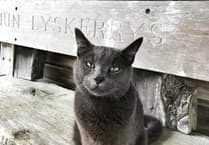Plans to convert a former public house near Saltash into a dwelling have hit the buffers after the plans were thrown out by Cornwall Council.
An application was made to Cornwall Council for the conversion of the Crooked Spaniard Inn, on Fore Street, Cargreen, Saltash, with it being made by Mr and Mrs Arnold.
The plans involved creating a dwelling in the former public-facing part of the venue on the ground floor, while converting the existing three-bedroom managers accommodation on the first floor into a holiday flat.
Previous attempts to redevelop the property have mostly been refused too, with a plan to demolish an existing two-storey and single storey extension with the erection of eight residential units and a pontoon refused in 2016, a similar plan involving seven and four holiday units respectively refused in 2012 and 2010 and previous plans to turn it into a dwelling in the early 2000’s also rejected.
In their submission to Cornwall Council, the owners of the Crooked Spaniard building said it had been closed since 2008, and claimed it was not viable as a pub, saying: “Notwithstanding the applicant’s historical attempts to make the business financially viable, the settlement is small and there is not the amount of trade needed on a regular basis to make the business viable.
“There is clearly no demand or need for the facility given the small size of the settlement, and the lack of any other commercial uses in the area mean that the location is not a destination that will attract visitors from further afield.
“The last commercial use in the village to exist before the pub closed was the local village convenience store, and this closed prior to when the pub ceased trading in 2008. Further, Cargreen Yacht Club (on Coombe Lane) is a licensed premises and within walking distance of the main settlement.
“The long period since the pub was last in operation (15 years) has also had an impact upon the area, and residents are now used to the area being a wholly residential location where the introduction of a night time use would conflict with the general amenity of the area, particularly given the close proximity of some of the existing dwellings.
“The period of closure has changed the character of the area and the reintroduction of a public house would not be well received.”
There were 16 objections to the plans and 16 expressions of support expressed by residents as part of the consultation.
Landulph Parish Council objected to the proposed development of the Crooked Spaniard, stating in its consultation response: “Landulph Parish Council’s response is to reject this application for the following reasons: The applicant has failed to provide evidence that there is no need for a community facility in the parish.
“Neither have they attempted to market the property as a public house (as required by the planning process). Hence, they have not provided evidence to support the argument that such a use is no longer viable. In the recent housing survey undertaken by the Council 51% of respondents stated that they would like a public house in the village. There are no licensed facilities in the parish open to the public.”
Cornwall Council rejected the application on the grounds that in their view, despite the venue being closed since 2008, there was insufficient evidence that its use as a pub was redundant, adding that it had not been actively marketed as a going concern.
Further, they added an insufficient flood plan was provided in the application. They told Mr and Mrs Arnold: “Despite a significant time of closure, in the absence of a robust marketing campaign and either a viability report or alternative adequate facilities or services in similarly accessible locations, the change of use of The Spaniards Inn to a residential use would result in the loss of a valuable community facility within a well populated rural village location, which could, if re-opened, contribute to the social and economic wellbeing of the local community.
“Insufficient evidence has been provided to demonstrate that there is no need or demand for the facility or that it could not be economically viable such that a commercial future should be abandoned, while there are further insufficient alternative facilities available in the vicinity.
“Consequently, the development fails to accord with policies 1, 2, 4 and 5 of the Cornwall Local Plan Strategic Policies 2010 - 2030 (adopted November 2016) and paragraphs 8, 81, 84 and 93 of the National Planning Policy Framework 2023. Part of the site lies within Flood Zones 2 and 3 as well as the Coastal Erosion Vulnerability Buffer Zone. However insufficient information has been submitted in the form of suitable Flood Risk Assessment and therefore flood risk in relation to the proposal cannot be fully assessed. The proposed development is therefore contrary Policy 26 of the Cornwall Local Plan Strategic Policies 2010 - 2030 (adopted November 2016) and Paragraph 167 and 168 of the National Planning Policy Framework 2021.”




